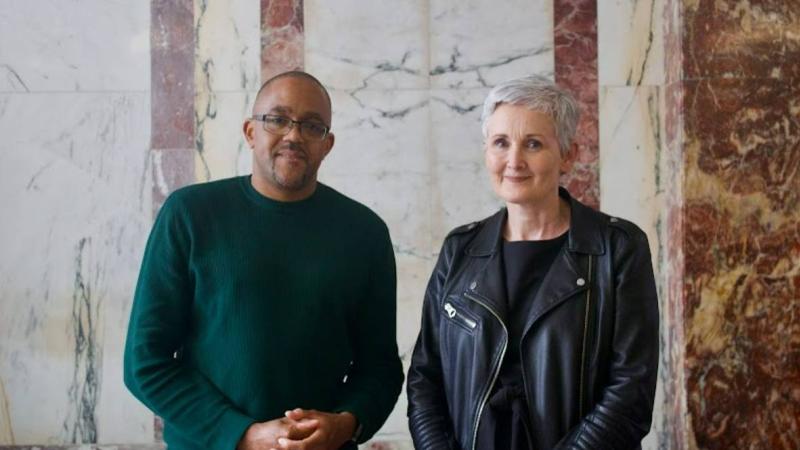Professor Andrews gave his lecture as part of the University of Westminster’s Graduate School Festival on Wednesday 25 May 2022 in Fyvie Hall at Westminster’s Regent Street Campus.

The Graduate School Festival this year was focused on learning from and thinking beyond disciplines, and the keynote lecture from Professor Kehinde Andrews, titled ‘The Radical Possibilities of Black Studies’, put the very idea of disciplines under the microscope.
Through the story of his own academic and personal history, Professor Andrews showed how the histories of disciplines in the humanities and social sciences have very particular legacies and effects. At the heart of the lecture was the question of how disciplines created in the 19th century on the model of racist scientific ideas and propounding colonialist ideas can be perceived as anything but problematic for the academy and academics of colour in particular.
Professor Andrews noted that these disciplines are still embedded in the structures of universities today, and acknowledged that, as researchers early in their careers, doctoral students must work within these structures. However, Professor Andrews emphasised that working within these structures is not the same as embracing them and gave a powerful sense of how early career researchers of colour could negotiate this difficult path. Connections outside the academy are key, he said, to remain rooted in community.
Speaking about what he took from the lecture, Kevon Jones, a first-year PhD student in the Social Sciences said: “Professor Kehinde Andrews spoke truth to power in his keynote lecture and was honest in how he spoke about the realities of being in academia. Having only started my doctoral journey in September, spaces like these are important and conversations generated in these spaces as well as beyond them are key for intellectual development.
“The key things I will be keeping in mind from this keynote is not to get stuck in the box of a discipline, whether this be in the social sciences or otherwise, and to move beyond Marx's concept of philosophers merely interpreting the world and trying to actually change it.”
Stephanie Ifill, a first-year PhD student in the Social Sciences commented: “The powerful and most challenging part of Kehinde's talk was that he was not trying to sell us a dream but also tell us his harsh reality. Kehinde reminded me through his talk that this other way of coming to know has real consequences in discipline-centric academia, which still demands that we be one or the other, that we gatekeep the grand canons of the discipline; canons which restrict what sorts of knowledge ‘counts’.
“As a Black female doctoral researcher, it can be, and often is, discouraging to contend with disciplines that are dominated by white men's perspectives and ideas. The Graduate School, in giving considered space for such a discussion to be had, brought to my attention that I am in an environment at Westminster in which inquiries like mine might have the opportunity to flourish, but we all still have a long way to go.”
Lonceny Kourouma, a first-year PhD student in Social Sciences added: “Professor Kehinde Andrews' keynote lecture was really compelling and inspiring. What captured my attention the most were two quotes from his speech – the first was when he stated that “We can’t decolonise the University but instead we need to colonise the University”, meaning that we need to create spaces for ourselves to do what we need to do. He also stated that “The idea of disciplines needs to disappear”, which was a clear reference to how Black Studies is naturally interdisciplinary. Black Studies is a critique of the status quo, it is a different way of thinking about the world.”
Kehinde Andrews is Professor of Black Studies at Birmingham City University. His latest book is The New Age of Empire: How Racism and Colonialism Still Rule the World, published by Penguin Allen Lane in 2021. He is also the author of Black to Black: Retelling Black Radicalism for the 21st Century and Resisting Racism: Race, Inequality and the Black Supplementary School Movement and is editor of the ‘Blackness in Britain’ book series with Bloomsbury. Kehinde has written opinion pieces for outlets including The Guardian, The Independent, The Washington Post and CNN. He is founder of the Harambee Organisation of Black Unity; and editor-in-chief of ‘Make it Plain’.
Learn more about the Graduate School at the University of Westminster.


